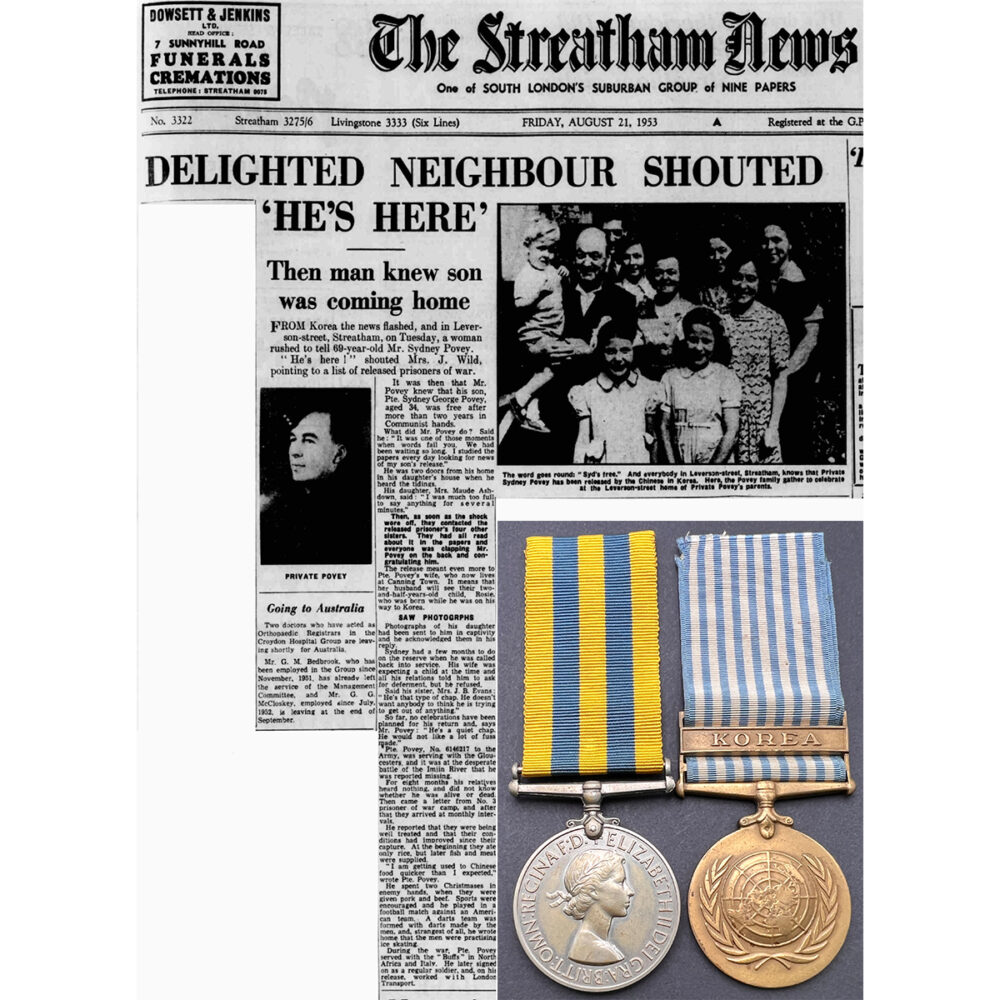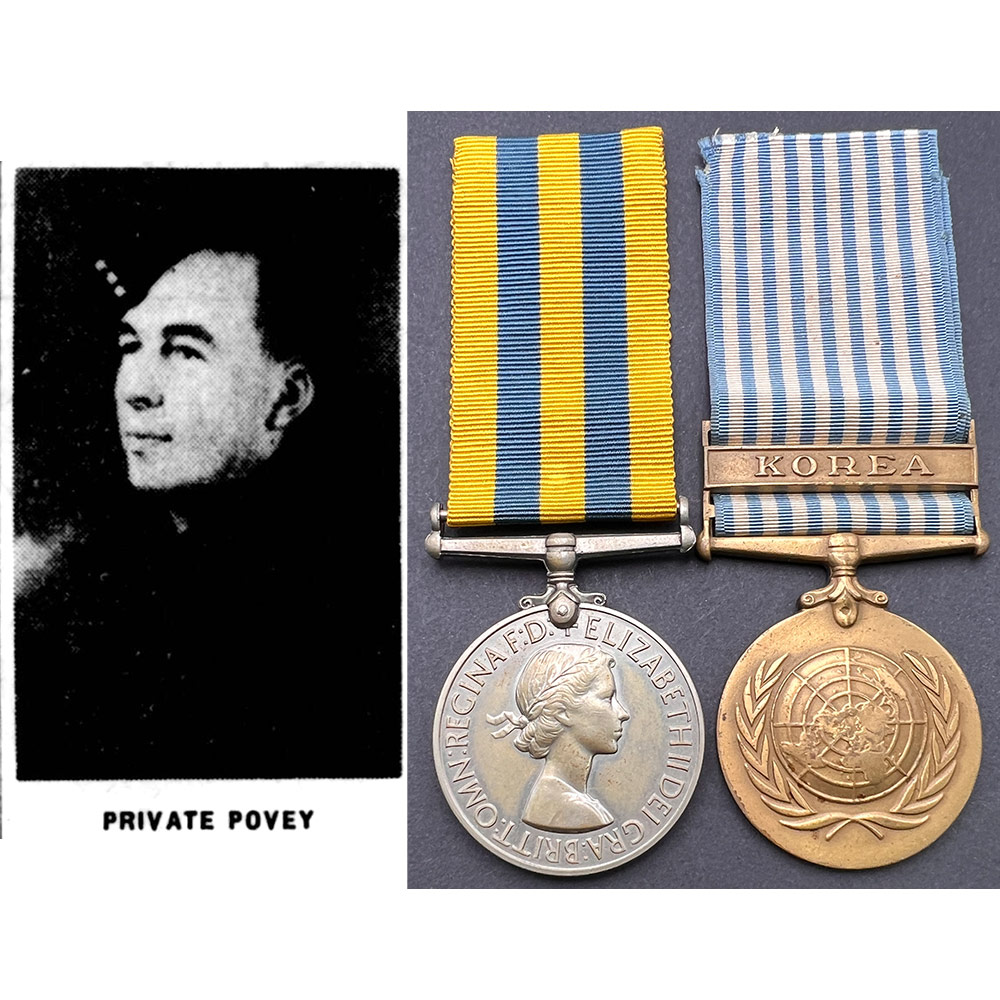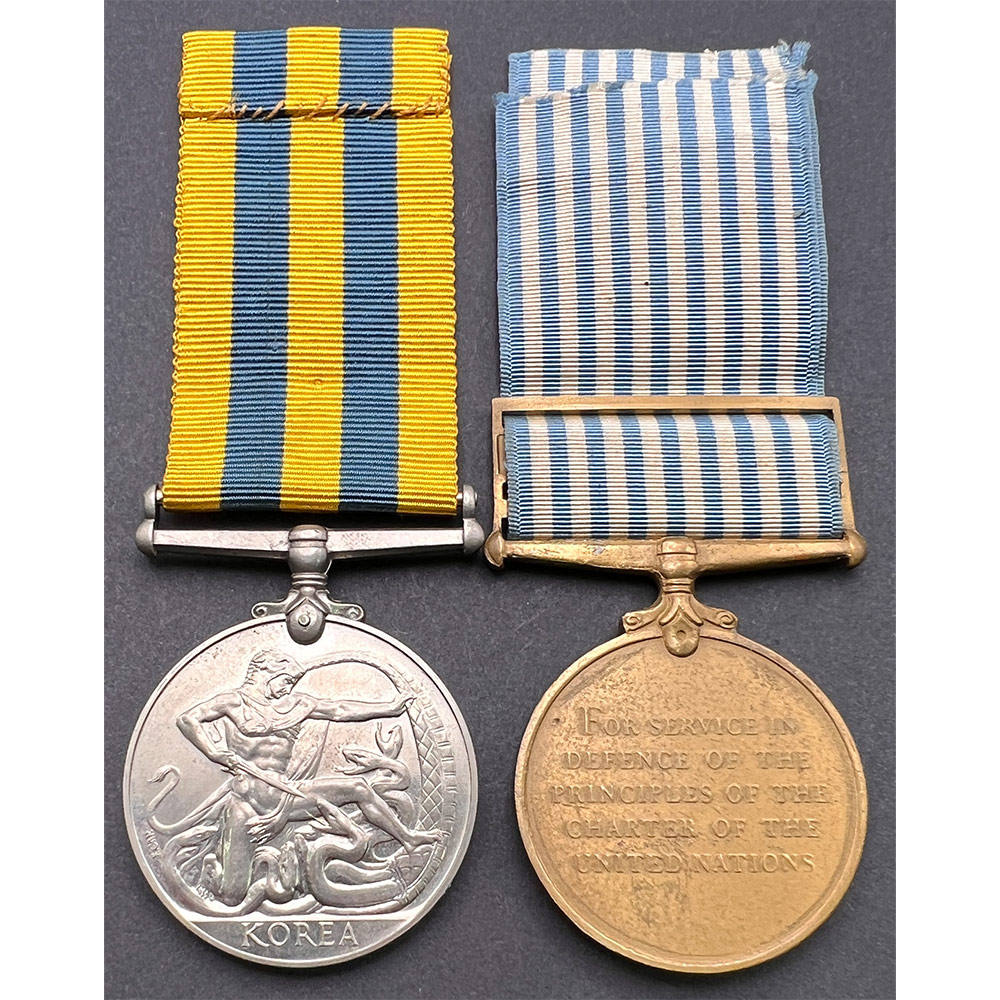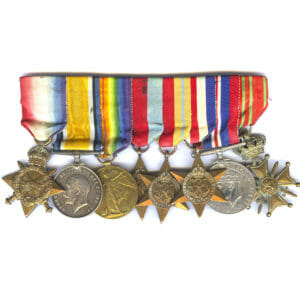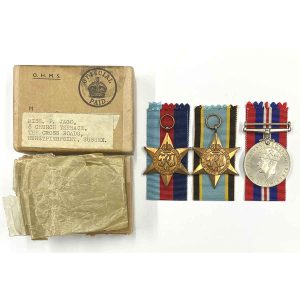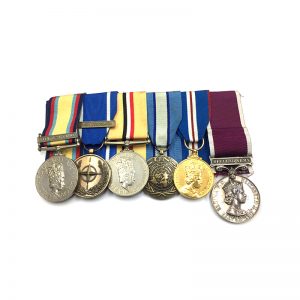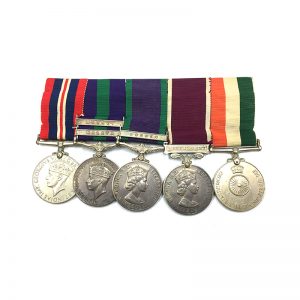Description
Korea Medal 1950-53, UN Korea, 6146211 Private Sydney George “Syd” Povey, Glosters Gloucestershire Regiment, taken as a Prisoner of War at the Battle of Imjin for 2 years.
Korea Medal officially impressed: “6146211 Pte. S.G. Povey. Glosters.”
UN Korea unnamed as issued.
Private Povey was taken as a Prisoner of War during the Battle of Imjiin River, amongst the list of those missing and presumed as Prisoners of War on 26th April 1951.
During his “2 Christmases” as a Prisoner of the Chinese, he was held at Camp 1 Unit 29B, and his Wife at home spent 8 months believing he could be dead, and would never return home to meet his Newborn daughter.
Sydney George Povey or “Syd” as he was known by his friends and family, was a former WW2 veteran who had served with his local regiment the East Surreys and East Kents, the Buffs throughout the war fighting through North Africa and Italy.
When the time came to be deployed to Korea, having signed up once again for service with the Regular Army, his wife was close to giving birth to his daughter, but he could not in good conscience decline the chance to do his duty.
“He’s that type of chap, He doesn’t want anybody to think he is trying to get out of anything.”, Said his Sister.
His father said: “He’s a quiet chap. He would not like a lot of fuss made.”
So instead of asking for a deferment he went with the Glosters to Korea and missed the birth of his daughter.
“Private Povey was serving with the Gloucesters, and it was at the desperate Battle of the Imjin River that he was reported missing.
For 8 months his relatives heard nothing , and did not know whether he was alive or dead. Then came a letter form No 3 Prisoner of War Camp, and after that they arrived a monthly intervals.
He reported that they were being well treated and that their conditions had improved since their capture.
At the beginning they ate only rice, but later fish and meat were supplied.
‘I am getting used to Chinese food quicker than I expected,; wrote Pte Povey.
He spent 2 Christmases in enemy hands, when they were given pork and beef. Sports were encouraged and he played in a football match against an American Team, A darts team was formed with darts made by the men, and strangest of all, he wrote home that the men were practising ice skating.”
The full article is recounted below:
Delighted Neighbour Shouted “He’s Here”
Then man knew son was coming home
From Korea, the news flashed, and in Leverson-street, Streatham, on Tuesday, a woman rushed to tell 69-year-old Mr. Sydney Povey. “He’s here!” shouted Mrs. J. Wild, pointing to a list of released prisoners of war.
It was then that Mr. Povey knew that his son, Pte. Sydney George Povey, aged 34, was free after more than two years in Communist hands.
What did Mr. Povey do? Said he: “It was one of those moments when words fail you. We had been waiting so long. I studied the papers every day, looking for news of my son’s release.”
He was two doors from his home in his daughter’s house when heard the tidings.
His daughter, Mrs. Maude Ashdown, said: “I was much too full to say anything for several minutes.”
Then, as soon as the shock wore off, they contacted the released prisoner’s four other sisters. They had all read about it in the papers and everyone was clapping Mr. Povey on the back and congratulating him.
The release meant even more to Pte. Povey’s wife, who now lives at Canning Town. It means that her husband will see their two-and-half-years-old child, Rosie, who was born while he was on his way to Korea.
Saw Photographs.
Photographs of his daughter had been sent to him in captivity and he acknowledged them in his reply.
Sydney had a few months to do on the reserve when he was called back into service. His wife was expecting a child at the time and all his relations told him to ask for deferment, but he refused.
Said his sister, Mrs. J. B. Evans: “He’s that type of chap. He doesn’t want anybody to think he is trying to get out of anything.”
So far, no celebrations have been planned for his return and, says Mrs. Povey: “He’s a quiet chap. He would not like a lot of fuss made.”
Pte. Povey, No. 6146217 to the Army, was serving with the Gloucesters, and it was at the desperate battle of the Imjin River that he was reported missing.
For eight months, his relatives heard nothing, and did not know whether he was alive or dead. Then came a letter from No.3 prisoner of war camp, and after that, they arrived at monthly intervals.
He reported that they were being well treated, and that their conditions had improved since their capture. At the beginning, they ate only rice, but later fish and meat were supplied.
“I am getting used to Chinese food quicker than I expected,” wrote Pte. Povey.
He spent two Christmases in enemy hands, when they were given pork and beef. Sports were encouraged and he played in a football match against an American team. A darts team was formed with darts made by the men, and, strangest of all, he wrote home that the men were practising ice skating.
During the war, Pte. Povey served with the “Buffs” in North Africa and Italy. He later signed on as a regular soldier, and, on his release, worked with London Transport.
